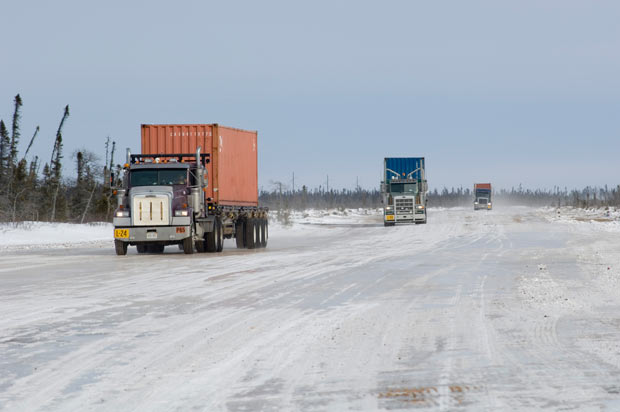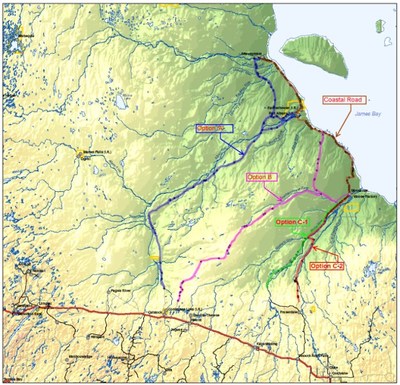THUNDER BAY – Marten Falls and Webequie First Nations extend their congratulations to the Mushkegowuk James Bay coastal communities and the Government of Ontario on their recent commitment to explore an all-season road to western James Bay.
Connecting isolated First Nations across northern Ontario with all-season roads will bring enormous economic opportunities, enhanced food security, lower shipping costs for bulk items, and the potential of environmentally responsible resource development and well-paying jobs for communities with high unemployment who are open to that possibility.
Marten Falls and Webequie steadfastly support Mushkegowuk communities on this economically worthwhile initiative!
Marten Falls and Webequie are currently working on First Nations-led Environmental Assessments (EAs) on three road proposals, located almost exclusively on their traditional territories. The three road proposals are:
- the Marten Falls Community Access Road (MFCAR), starting at forestry roads north of Aroland First Nation and the town of Nakina, and running approximately 190 km to 230 km to Marten Falls;
- the Webequie Supply Road, running 107 km between Webequie FN and the Ring of Fire mining camp; and
- the Northern Road Link proposal, running roughly 155 km, that will link the two previous road projects.
The Mushkegowuk communities are very aware that all Northern, isolated First Nations are greatly impacted by the climate change emergency that is affecting the entire world. The utility of critical winter road infrastructure, vital for the transport of heavy building materials, diesel fuel for electrical generation and essential food supplies, is being affected by warmer temperatures and much shorter winter road seasons.
Marten Falls Chief Achneepineskum says, “Last year was one of the shortest winter road seasons that our elders can remember. If we can’t bring up all the necessary bulk supplies during much shorter seasons than we need to spend limited financial resources to fly these vital supplies into our communities. Marten Falls and Mushkegowuk communities alike face the impact of climate change today, but impacts are likely to get worse in the coming years, so the time to plan is now.
In fact, our entire community is eagerly waiting for the day the Marten Falls Community Access Road opens and connects our community to the provincial highway system. This project presents enormous economic opportunities that would employ our people and allow them access to the outside world, which is vital to the emotional and general well-being of our membership. Another critical benefit of this road is that it will significantly reduce the cost of food and ensure food security.”
Indigenous Environmental Assessments entail detailed, community-directed studies that seek best practices to protect and safeguard the environment. The process will incorporate traditional knowledge and consultation with First Nations people of all ages, including Elders, women, and youth groups.
Chief Wabasse of Webequie First Nation says, “We are encouraged by other First Nations in the coastal region taking a proactive approach towards infrastructure development up north. Webequie is currently undertaking an Environmental Assessment to better understand Webequie Supply Road project impacts in the process. It allows us to generate information which will be needed for our decision making. We have the environment stewardship right to pursue opportunities that position our First Nation to be proponents which improves better communication and certainty within our community. It requires cooperation and willingness to learn that paves a way to adapt to change which ensures prosperity and long-term sustainability for our people.”
For isolated First Nation people, new road infrastructure will bring needed training, jobs for road maintenance and other business prospects and make enormous progress for reconciliation between Indigenous and non-Indigenous societies. The proposed Projects by Marten Falls and Webequie will be two-lane, all-weather, gravel access roads with water crossings, built to accommodate both passenger and commercial vehicles.
Both Webequie and Marten Falls would be more than happy to meet, assist, and share lessons learned based on their experience as Indigenous proponents with the Mushkegowuk James Bay coastal communities on their initiative to plan an all-season road to their communities.



